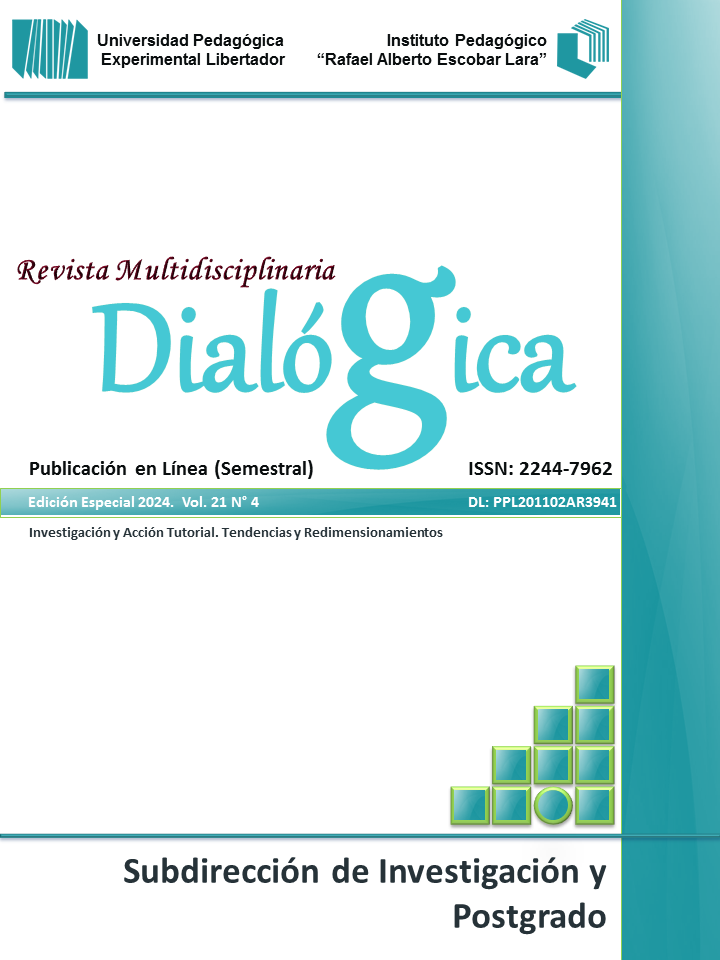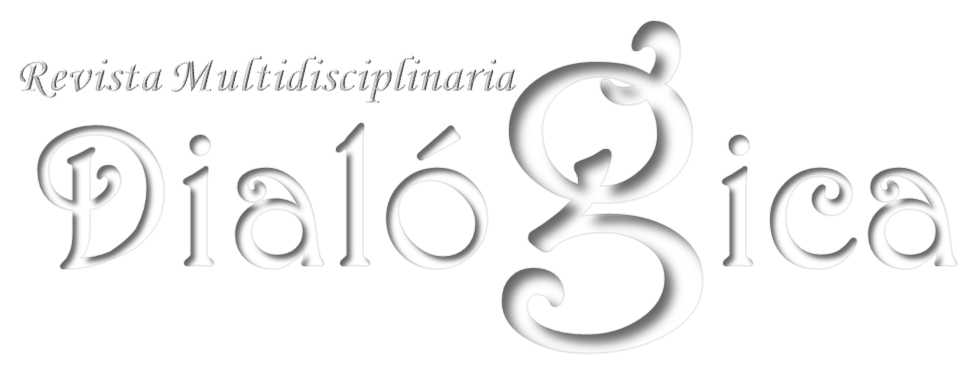TUTORIAL MANAGEMENT IN DOCTORAL THESES: AN ENACTIVE TURN
DOI:
https://doi.org/10.56219/dialgica.v21i4.3304Keywords:
Management tutorial, doctoral thesis, enactive turnAbstract
The purpose of this essay is to elucidate the tutorial management of doctoral theses in Venezuela, from an enactive perspective. In this sense, a reflective critique was carried out on the deconstruction of the scientific ties of disciplinary dogmas, academic impostures and extreme methodologicalism, which prevent efficient tutorial training. Likewise, they play a leading role: the lines of research, the doctoral research seminars and the direct advice of the tutor, the product of a rational, intuitive and irreverent effort of the subjects involved. The travel log contains the following constituent elements: Expanding tutorial management, the tutor In omnia paratus?, the Tutor Researcher (IT)-Researcher Thesis (TI) relationality, the enactive trends and principles in tutorial management and the transitory nature of the doctoral thesis. The final derivations show that doing science from a doctoral thesis requires a high ethical, axiological and existential commitment between the Tutor and the Research ThesiThesis
References
Arias, F. (2018). La tesis doctoral. El caso venezolano. Revista Paradigma, 39(1) 138–149. http://historico.upel.edu.ve:81/revistas/index.php/paradigma/article/view/6813.
Bunge, M. (1999). Buscar la filosofía en las Ciencias Sociales. Ediciones Siglo XXI.
Difabio, H. (2011). Las funciones del tutor de la tesis doctoral en educación. Revista Mexicana de Investigación Educativa. 16(50). 935-959. https://www.scielo.org.mx/scielo.php?script=sci_arttext&pid=S1405-66662011000300012
Heidegger, M. (1997). Ser y tiempo. (Trad. Rivera, J.). Universitaria.
Hermoso, V. (2023). Investigación en la acción y relación tutorial; tendencias enactivas. y alternas: Modelo para generar modelos. Postdoctorado en investigación de la formación tutorial. Material digitalizado. Postgrado de la Universidad Pedagógica Experimental Libertador, sede Aragua.
Hermoso, V. (2024). Módulo VIII Conversaciones de cierre: El investigador tesista, Seminarios de investigación, Resúmenes de módulos I, II, III, IV, V, VI, VII. Material digitalizado. Postgrado de la Universidad Pedagógica Experimental Libertador, sede Aragua.
López, J. (2019). Algunas reflexiones sobre ética de la investigación científica. Integridad académica, 3 (6), 8-11. https://issuu.com/integridadacademica/docs/revista_ia_-_ene-jun_2019_-_digital/8.
Machado, F y Machado, A. (2014). Paradigmas en la tesis de grado. Revista Arjé. 8 (14). 207-224. http://servicio.bc.uc.edu.ve/educacion/arje/arj14/art13.pdf.
Mayz Vallenilla, E. (1974). Crítica de la razón técnica. Equinoccio. Ediciones de la Universidad Simón Bolivar: Caracas, Venezuela.
Morales, J.T. (2013). Al reencuentro con el diálogo en el aula. Pedagogía de la trascendencia. Realidades literarias postdoctorales. En: Mogollón, A. y Hernández, N. Asociación de Profesores. Universidad de Carabobo.
Morales, J.T. (2014). La construcción teórica en las tesis doctorales de Ciencias Sociales-Educación. Revista Arjé, 8 (14). http://www.arje.bc.uc.edu.ve/arj14/art15.pdf
Morin, E. (2001). Los siete saberes necesarios para la educación del futuro. Paidós.
Thompson, E. (2007). La mente en la vida: biología, fenomenología y ciencias de la mente. Universidad de Harvard.
Valdés, P. (2016). Introducción a la geometría fractal. Universidad del Bio-Bio. http://repobib.ubiobio.cl/jspui/bitstream/123456789/1998/3/Valdes_Vasquez_Patricio.pdf.
Downloads
Published
How to Cite
Issue
Section
License
Copyright (c) 2024 Airam Karellys Torres Buitriago, Orlando Cáceres Torres

This work is licensed under a Creative Commons Attribution-NonCommercial-ShareAlike 4.0 International License.


 @revistadialogica
@revistadialogica DialogicaUPEL
DialogicaUPEL RevistaDialogicaUPELMaracay
RevistaDialogicaUPELMaracay dialógicaupel@gmail.com
dialógicaupel@gmail.com dialogicaupel.blogspot.com
dialogicaupel.blogspot.com https://issuu.com/dialogicaupel
https://issuu.com/dialogicaupel https://revistas.upel.edu.ve/index.php/dialogica/
https://revistas.upel.edu.ve/index.php/dialogica/









